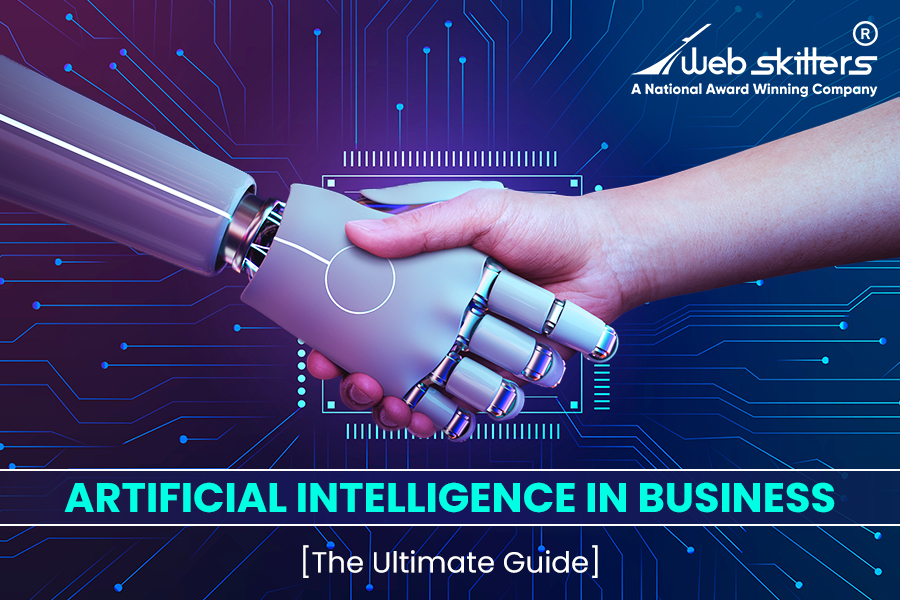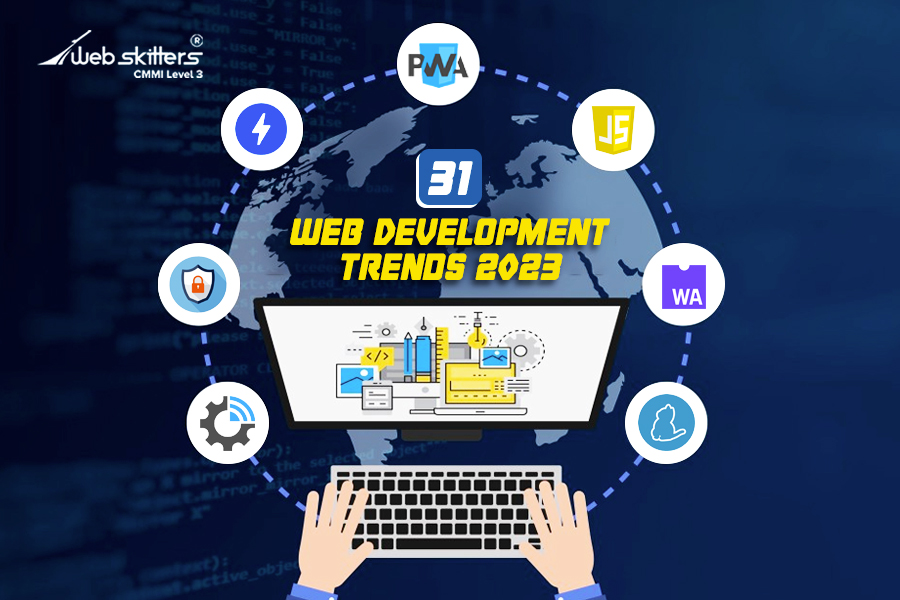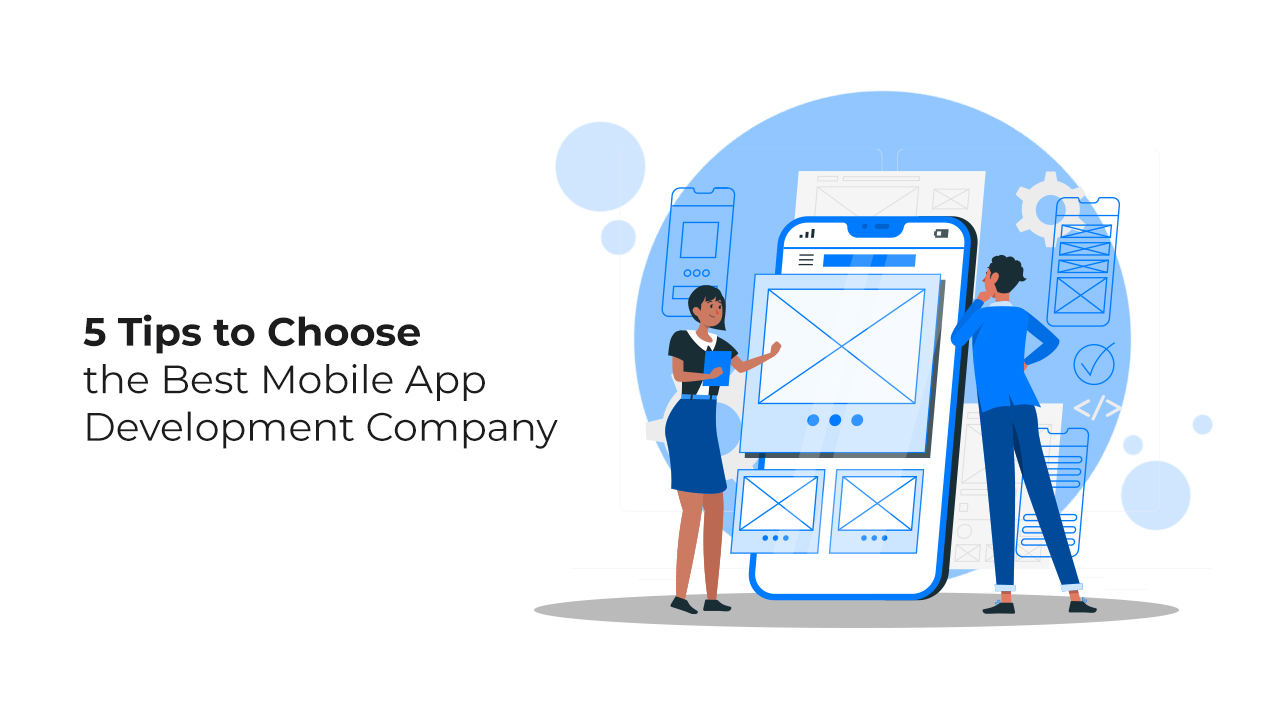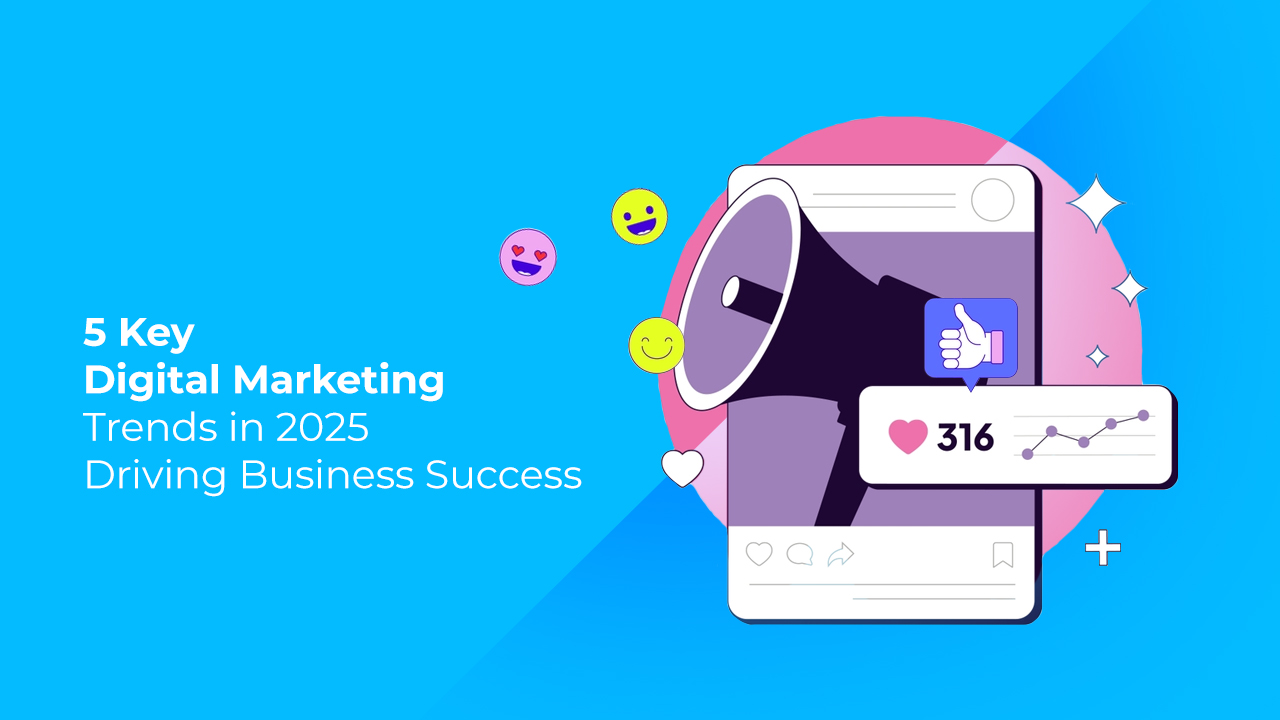
Artificial Intelligence in Business: Applications & Best Practices in 2023
The recent hype about ChatGPT everywhere has left us wondering about the endless capabilities of Artificial Intelligence or AI.
It’s an AI-driven natural language processing tool that answers questions, types emails or code, and engages in different human-like conversations.
Even if you haven’t come across ChatGPT yet, we are sure that you are engaging with AI every day multiple times or at least once! It’s only because AI has become prevalent in every aspect of our lives, and we evidently encounter hundreds of examples of it.
Speculating how? Well, the maps we use for navigation, autocorrect options on keyboards or apps like Grammarly, and product recommendations on eCommerce sites– are some live examples of AI used today.
AI allows machines to think, interpret, and act like humans. From smart assistants like Siri or Alexa to Chatbots and face detection, AI is everywhere, and it is developing continuously. Not only AI is helping people become smarter but also transforming how we do business.
Now, this leads us to the big question i.e., what is the role of artificial intelligence in business? This blog answers this and discusses how AI is constantly revolutionizing every sector of business with its human-like intelligence.
Take a read through this comprehensive blog to know how is artificial intelligence used in different fields of business for scalability, growth, decision-making, competitiveness, and many more!
What is Artificial Intelligence?
Before we explore how AI impact businesses, it is important to learn what defines AI.
In simple terms, Artificial Intelligence or AI relates to the field of technology that concerns machines and computer programs to reason, learn, respond, and act like humans.
In other words, it is enabling machines with human intelligence by helping them collect and analyze data. That’s why the term ‘Artificial Intelligence!’
The way AI lets machines analyze data and find solutions exceed the way humans do it. Thanks to it, you can now make informed decisions much faster than before.
Technically, AI is a set of technologies that are based on Machine Learning (ML) and Deep Learning (DL), which makes use of computer sciences and vast datasets for intuitive problem-solving.
It concerns the development of smart machines capable of doing functions that require human intelligence.
Now, to further understand AI and how it is revolutionizing businesses, let’s explore ML and DL.
8 Real-Life Examples of AI-Enabled Products and Services
As AI is enabling machines to learn and make decisions based on data and analytics, it is helping individuals as well as businesses to fast-track their activities in many ways.
Here are a few real-life examples of AI-enabled products and services that will help you understand how.
1. Smartphone applications
Smartphones have become an indispensable part of our lives, and the built-in applications in them, like Siri and Google Assistant, are the most prominent examples of AI. Those are smart virtual assistants that take voice commands and respond with the use of AI.
For instance, if you want to send a message to your Dad that you will be late, just say to Google assistant “Okay, Google! Send Dad a text that I will be late”. The Google assistant in your smartphone will do that straight away.
Besides, there are many apps on mobiles today that use AI and help in functions like battery management, birthday reminders, weather forecasts, event suggestions, and so on.
2. Maps and Navigation
Another obvious example of an AI-based product that we use daily is Google Maps or Apple Maps for navigation. Today, instead of relying on directions from the locals, we can just type the destination and get the most optimal route from our starting point.
What’s even better, we get the route to travel by car, bus and walking. So, you can take an appropriate route suggestion, according to your travel mode.
AI allows the map to provide enhanced navigation with better and more realistic visuals. You also get information road blocks, traffic congestion, street names, house numbers, and so on.
3. Autocorrect or Text Editing Tools
If you have ever heard of or used Grammarly, then you know how AI even works on text editors to correct texts, like checking the spelling and grammar of writing. Even if you use a comma incorrectly, the editor will find the error.
The AI algorithms make use of machine learning, deep learning, and also natural language processing to suggest corrections in a write-up, whether it is a word processor or any texting app.
4. Chatbots
Any on-demand services or product-based apps that we use today are integrated with Chatbots! What are they?
They are simple conversational tools embedded in apps or websites that initiate interactions with customers just like a customer service representative of a company does.
Companies find it tiring to search for customer service representatives who are available 24×7 to respond to the queries, problems, or grievances of the customers.
Besides, it was expensive too! Now, with AI, they have chatbots that answer customers, take data, interpret their concerns, and resolve problems appropriately.
5. Smart cars
Automobile giants like Tesla are continuously looking for ways to include automation in vehicles using AI. It enabled using and sharing of information between the cars to help each other with efficient maneuvering amidst traffic.
The smart cars enabled with AI-based apps provide real-time information on road traffic, landmarks or whereabouts of a place, etc., immediately so that the cars can reach the desired location on time.
6. Music and video streaming
The applications of artificial intelligence are unquestionable in music and video streaming apps including, YouTube, Spotify, Netflix, and so on. The suggested playlists or movie/series recommendations that you get after playing one indicate how AI works!
It interprets your preferences or taste for a particular genre and comes up with more tracks or videos of the same.
7. Security and surveillance
The use of AI is also prevalent in the applications needed for security and surveillance services. Smart devices like intercoms, smart locks, intruder alarms, and smoke detectors are using AI to detect faces, objects, and unusual activities.
These devices are designed with AI to receive inputs, analyze them, and notify if there is any irregular occurrence or an unusual object.
For instance, the smart intercom speaks to the person on the door via video/voice call and automatically unlocks the door after recognizing the voice or face.
In case of an unauthorized visitor, it not only keeps the door locked but also sends an automated alert to the owner.
8. Social Media
Social media is also not much behind when it comes to using AI. It recognizes users’ search intents or preferences and provides users with content according to their preferences.
Twitter is the finest example known! It intelligently identifies hate speech, violence, fake news, and illegal content and blocks them.
It even takes down the account with continuous suspicious activities or sends a warning. Facebook and Instagram also do that.
How Does AI Impact the Working Segment?
With AI applications in business along with various fields of life, many are apprehensive about whether AI will replace humans and force them out of work. With AI automating many business processes, the fear is obvious among the working segment of the population.
However, technology experts are vehemently opposing AI will automate jobs whereas, some are expressing it as a daunting problem. Instead of eliminating jobs, workers are expected to learn and adapt to AI capabilities.
They are needed to support AI tools and make them turnkey solutions for business. It’s also expected that will drive relentless innovation in every sector, which will ultimately create new job opportunities.
Artificial intelligence truly allows humans to build a completely knowledge-based world where they need to leverage automation technologies to fast-track operations and enhance the delivery of services.
Technically, AI is capable of performing tasks only with human domination i.e., you need to apply and support the technology to get results and improve the way business operates.
The debate about whether AI will replace jobs will go on, but here we provided you with some clarity on the same.
The rise of AI will undeniably change how people work and bring a massive transition to the economy. But, it is anticipated to create more opportunities than it replaces.
AI and Its Impact Today on Business
AI is no more a buzzword or a predictable trend in business. It is apparent in every industry and sector, and is benefitting them in hundreds of ways!
From enhancing processes and efficiency to offering better convenience to customers, it is doing everything to help businesses grow.
To understand the role of AI in business, you must view it from the perspective of business capabilities rather than technology.
AI primarily influences business in three vital ways:
- Process automation
- Data analysis and cognitive insights
- Customer engagement
Now, let’s look into each of these briefly to perceive what is AI for business and how it fast transforming the way the business world operates.
1. Process Automation
The common or first impact of AI in business is the automation of tedious physical tasks or data entry activities. Typically, these are all back-office work, including administrative and financial tasks.
It is known as robotic process automation or RPA, which is quite more advanced than earlier process automation tools. That’s because the code on the server called ‘robots’ input data and gather information from other IT systems just like a human.
Some of the other significant processes that AI helps with automation are:
- Data transferring from emails or calling systems to the company’s record system.
- Updating records of credit and debit cards into multiple systems after transactions.
- Extracting information for billing and other systems from various document types.
- Reading instructional manuals, legal, and contractual information to extract essential information and provisions.
2. Data analysis and cognitive insights
The second crucial impact of AI in the business world is observed in the field of data analysis. The algorithms detect a pattern in huge datasets over time and interpret their trend or pattern. Most companies use machine learning applications to analyze huge volumes of data and predict insights:
- What customers are likely to buy?
- Identify unusual transactions or frauds.
- Analyze warranty data for identifying safety and quality issues in the products (electronics, automobiles, etc.).
- Automate targeting with personalized ads.
- Providing accurate actuarial modeling to the insurers.
Cognitive insights by AI-based applications are useful for improving the performance of the jobs that machines do, such as programmatic ad buying, high-speed data crunching, and so on, which are typically outside the scope of human capabilities.
3. Customer engagement
AI is progressively used in businesses today to improve customer support services and enhance the overall customer experience.
Thanks to Chatbots and other intelligent agents, companies can now initiate direct interactions with their customers anytime, without the help of any sales agent.
The intelligent Chatbots or agents help them address myriad issues, including custom complaints, grievances, and queries. Interestingly, they do that in the natural language of humans.
However, the use of AI in customer support is not necessarily a threat to customer service executives or sales representatives. It’s because they are designed to handle only a certain range of issues or conversation types. Beyond that, a real executive is required.
In other words, cognitive engagement by Chatbots or AI-based apps are useful to reduce the wait time of customers who usually become impatient when they have an issue or grievance.
Some of the ways AI is enhancing customer engagement are:
- 24×7 customer support services.
- Offering product/service recommendations to companies that help in personalization.
- Answering customers on topics, including price, sales offers, company’s customer policy, and so on.
- Send personalized messages or notifications to customers (birthdays, anniversaries, new product offers, etc.).
12 Widespread Applications of Artificial Intelligence in Business
The uses or examples of artificial intelligence in business are countless. The use of AI in business is accelerating at the fastest rate, and the scenario in every sector is changing now and then.
According to a report by IBM, the adoption of AI applications in business saw a huge surge in the wake of the COVID-19 pandemic. Facilitating online business operations became a prerequisite for companies to meet the demand of customers.
Most of the advanced tools of AI are accessible to companies today. According to the report, data security, customer support services, and automation of operations are the three primary areas where AI started making a major impact.
But, there are more ways or applications of AI in enterprises or companies. Learn here about them.
1. Automated processes
Enterprises need to perform hundreds of operations daily, most of them being repetitive tasks that are tedious and mundane for the employees.
These include operations like data entry, inventory management, HR and payroll management, etc.
AI-enabled software or applications enable them to automate hundreds of such operations so that employees can emphasize only the critical tasks.
A common example is how the customer service department works these days. Instead of manually responding to every customer with their basic queries, they use AI-powered intelligent Chatbots. Customer support executives take over only the complicated issues that are beyond the scope of Chatbots.
AI also helps in reducing errors in data entries and ascertains accuracy. If AI continues to automate operations in this way, soon enterprises will reach the level of maximum efficiency and productivity.
2. Informed decision-making
AI is performing even better than humans when it comes to decision-making! It’s almost impossible for the workforce to read and interpret a specific dataset from huge chunks of data. AI-empowered apps do that in seconds.
They read and analyze massive data available in the company’s database to identify trends, future scenarios, risks, and challenges.
Accordingly, the AI also suggests an appropriate action plan for the business aligning with the company’s objectives and missions.
We feel AI is more accurate in the case of data interpretation which helps companies in making informed decisions. They extract patterns and consequences from data that humans can never read. So, it’s saving time and efforts of the workforce that they invest in manual decision-making.
3. Improved productivity
This is a noteworthy improvement in business that came after AI successfully automated a huge range of operations. With automated workflows, employees could free their time from easy and repetitive tasks and perform vital operations better.
As a result, they can complete all types of operations faster, together with AI-enabled apps. This enhanced the company’s productivity manifold by increasing the efficiency of the operations.
4. Recruitment and talent acquisition
Recruitment processes involve a line of activities, including posting for jobs, reviewing candidatures, and lining up candidates for interviews.
These are just the initial steps involved in recruitment but there are many more next such as screening the candidates to handling documentation.
AI-powered HR applications eased each step of the recruitment process and helped HR executives select the most suitable candidates fast and efficiently. Here’s a small example of how AI helps. It infers the job description posted and automatically recommends the same to the candidates looking for a similar job.
AI also helps in screening candidates. From the interview performance, qualifications, and skills of the candidates, they summarize and suggest the list of the best candidates suitable for the job role.
5. Customer services
If there’s one field in business that is experiencing progressive transformation due to AI, then it is ‘customer services’.
There are most use cases seen in this field, from Chatbots for instant customer interactions to intelligent systems for identifying the preferences/buying behavior of the customers.
AI helped companies to better serve customers in a personalized way. It is technically not possible for the sales representative to manually collect all the customer information and purchase details to provide personalized recommendations later.
AI does that by drawing conclusions from massive customer data and purchase histories. Using predictive analysis, it suggests products to the companies that customers would need or like to purchase.
On the whole, AI empowered the customer support systems that will help you decide the next course of action and present the best options to your target customers.
6. Product recommendations
Businesses, especially product-based and eCommerce, are using AI to recommend products, i.e., cross-sell and up-sell. It tracks the orders, wish lists, or purchases of buyers and analyzes customer behavior.
It next recommends products based on what they viewed or purchased. Hence, there are maximum chances that customers will buy something that matches their interests or needs.
Another popular example of product recommendations that we come across every day is recommendations of playlists or video content on streaming apps like YouTube, Spotify, Amazon Prime, and Netflix.
7. Fraud and threat identifications
The scope of AI applications in business is truly unimaginable. Who could have thought that AI will prevent fraud and other security threats?
Multiple industries, including healthcare, hospitality, and real estate are using devices embedded with AI technologies such as sensors, motion detectors, and thermometers.
Smart security appliances like cameras and alarms are fed with data to identify problems that are beyond normal. It includes unusual temperatures, smoke/fire danger, suspicious movements, and so on. These helped companies to uplift their security level in every corner.
Another big example of AI saving us from fraud is seen in the financial sector. Many financial companies have AI-powered systems that use ML algorithms to detect fraud or any dubious transactions.
Whenever fraudulent activity is detected, the systems stop transactions and immediately send an alert to the required authority/customer.
8. Streamlining supply chain operations
Companies have been immensely benefitting from AI-based solutions in their supply and delivery functions.
They can predict the price and availability of materials, the distance the materials have to transport through the supply chain, and how fast they can be transported.
All these useful analytical data are helpful for companies to get accurate insights into supply chain operations. It helps them find the optimized way to procure materials and ship the finished products, thereby saving time and costs.
Another basic example of AI use in supply chain operations is the navigation apps that delivery executives use to find the most appropriate routes to their destination.
9. Audience segmentation
AI is enabling brands to hyper-target their customers i.e., reach the right audience at the right time with the right message.
Want to know how? It analyzes the customer data that a business gathers from different sources, including sales and social media platforms. It helps them understand the specific preferences of the customers and segment them into separate groups.
By understanding the needs of each group of customers, you can target your marketing campaigns appropriately to reach a suitable audience. In other words, AI helped increase the effectiveness of the marketing campaigns of companies.
10. Cybersecurity
Cyber security is full of challenges due to the vast threat of attacks across web and software applications. AI helps in vulnerability management and minimizing threats by understanding the network environment.
It also monitors the data center processes to identify threats, prevent them, and provide insights that are valuable for improving the data security level.
Businesses store the maximum amount of data in the cloud and that increases the risk of cyber threats. AI-based cybersecurity systems are now preventing breaches of data in the cloud network system.
Tech giants like Microsoft and Google are hence deploying AI-based cyber threat intelligence like RiskIQ and Mandiant to protect data from threats on the cloud platform.
11. Customer relationship management (CRM)
We already discussed how AI has altered customer support services and improved the satisfaction level of buyers.
So, on an obvious note, it also influences the CRM, an indispensable tool used by businesses today for improving customer experience.
The CRM makes use of the vast customer data collected from Point of Sales, emails, user-generated content in social media, eCommerce, etc., to help businesses in planning the next steps for sales and marketing.
While the integration of AI into the CRM is today, in the infancy stage, you can expect a lot of changes.
Using automated insights and predictive analysis, it helps you in improving the sales cycle, generate leads, curate personalized marketing campaigns, and reduce customer complaints/refund/ product recall.
12. Digital assistants
One of the prominent applications of AI in business is the digital personal assistants that make it easier for companies to perform a wide range of primary tasks, including adding events to the calendar, tracking expenses, filing customer queries, and so on.
Many digital assistants or IPA (Intelligent Personal Assistant) stores customers’ name and contact information but also remembers their buying behavior.
This helps companies to improve their customer satisfaction and loyalty by increasing customer engagement.
Some Prevalent Use Cases of AI in Prominent Industries
With innumerable benefits or uses of artificial intelligence in business, it is tough to imagine a world without it in the future. AI-enabled tools and applications are enhancing the productivity of businesses like never before.
From optimized workflow management to accurate forecasts, responding to customers preventing security threats, AI is changing businesses in many ways. Here are how a few sectors widely benefitted from the intervention of AI.
1. Healthcare
AI is bringing huge changes in diagnostics and treatment procedures, helping physicians and healthcare service providers to improve their services.
AI and ML tools are assisting the providers to analyze the data collected from the patient’s health records. It enables them to evaluate the diseases or conditions of patients faster and provide tailored treatment plans that are more appropriate.
Diagnostic centers are using various AI-enabled machines that examine and screen patients more accurately and provide physicians with precise inferences.
Some of the most common applications of AI in the healthcare sector that are trending at present are:
- Medical imaging analysis
- Smarter appliances for monitoring patients in ICU and CCU
- Monitoring health parameters through smart wearables
- Sending earlier warnings for conditions like sepsis by powering predictive analytics
2. Financial services
Today, AI is influencing the finance sector in a major way with most firms using machine learning tools to analyze their cash flows, detect frauds, and improve their credit scores.
It is also allowing financial companies to understand the legitimacy of each transaction by customers, which helps them in vital decision-making regarding loan approvals, portfolio management, trading, and so on.
AI isn’t just helping financial companies at large but also aiding individuals with the management of their finances.
Now, one can check balance, make instant payments, schedule monthly bills, and receive personalized recommendations for investments.
In short, it is helping them to improve their financial portfolio.
Some of the common examples of the use of AI in the financial sector today are:
- Assessing customers’ portfolios and providing financial advisory services.
- Analyzing patterns from large datasets to make decisions in trading.
- Examining customers’ spending patterns to predict their borrowing behavior.
- Reducing human errors in feeding huge sets of data into the systems.
- Initiating customer interactions and responding to emergency needs of customers.
3. Industrial maintenance
Most industries today are using AI to advance their predictive machine maintenance.
They are using AI-enabled tools to examine the present condition of machines and assets to predict the possible time that they will serve. Subsequently, it helps them to know the appropriate time when the machine needs repair or maintenance.
Most factories are deploying AI with machine learning today to process data, predict plant performance, and enhance equipment reliability. This helps them in avoiding downtime or delays in processes and improves overall productivity.
Overall, AI helps estimate the life cycle of their machinery assets, schedule replacement or new purchases, and optimize their total costs of maintenance.
4. Transportation
While the first instance of AI application in the transportation sector is the self-driving smart cars that provide extraordinary navigation experience, it has many other applications too.
AI traffic management systems emerged lately that are used in smart cities to optimize traffic flow, which helped drivers and pedestrians get an optimum route and save time.
Some other exclusive use cases of AI in transportation that are prominent today are:
- Face-scanning at airports
- AI ride-hailing services
- Delay predictions in flights, trains, etc.
- AI-powered parking management
- Road condition monitoring
How Artificial Intelligence Turned Useful For Your Business?
The impact of artificial intelligence in business is widely felt as every small or large enterprise has embraced it. It is helping them to make smarter decisions, better engage with customers, and streamline their management.
As a whole, it is a massive technological advancement that aided businesses to accelerate their growth in multiple ways. If you want AI to bring revolutionary improvements to your business, hire dedicated AI developers from one of the best tech firms.
Do you want to dig deeper and learn the uses of artificial intelligence in business operations? Here we have explained how it’s making remarkable advancements in each field of business.
1. Artificial Intelligence in Marketing
AI is helping businesses of all types to enhance their marketing efforts and reach the maximum audience. It is firstly enabling companies to automate their day-to-day marketing tasks such as scheduling emails, predicting and analyzing campaign performance, and tracking social media activities.
Apart from these, a big role that AI plays in marketing is content moderation and creation. It is helping businesses to produce content faster and promote them in the right way.
It is assisting content marketers big time to improve their marketing campaigns and heighten their campaign successes.
A few noteworthy ways AI is aiding businesses in their marketing aspect are:
Ad targeting and performance analysis
Effective AI platforms are helping businesses to create and target ads for the right audience. Most of them, such as the Levity.ai tool analyze the ad performance according to the targeted customer segment and hence, predict their success accurately.
Content creation and moderation
AI-powered tools help in generating content based on keywords, business area, and target audience. It also moderates user-generated content on social media platforms and prioritizes them based on your business.
SEO (Search Engine Optimization)
With the help of Machine Learning algorithms, AI is assisting marketing teams to identify the intent behind buyers’ searches as well as search trends. This enabled them to make better strategies for SEO.
Predictive customer analysis
By analyzing the data of previous purchases and interactions of customers, AI helps to understand your customers better. Subsequently, you can engage in a way to improve your relationships with them.
Image recognition
Many platforms, including Google Lens and FaceApp, can now read digital images, videos, or graphic inputs, and infer meanings from them due to AI.
This is helping marketers to deduce useful insights from thousands of pictures posted daily on social media and know how their products/services are used.
2. Artificial Intelligence in Sales
Most salespeople or executives struggle to meet their monthly or annual targets. To meet their targets, they are keen to adopt any technologies or solutions that look promising. While nothing was really that effective, AI-based solutions worked much better.
The success rate in the sales field grew exponentially. This poses a risk to firms or companies that are not adopting AI tools.
A recent Harvard Business Review revealed how AI has been constantly facilitating sales and assisting businesses to improve their bottom line.
From providing sales managers with self-assessment tools to accurate sales forecasting and augmenting customer engagement, AI has facilitated sales functions in many ways.
Here are some prevalent ways AI is assisting businesses to improve sales.
Targeting well by adapting to the buyers’ needs
Sales teams can quickly collect customer data and process insights to know about the intention and interests of buyers. So, they can adjust their services or modify products according to the buyers’ needs.
Enhanced personalization
AI tools helps the sales team to send personalized notifications or targeted messages to specific buyers after gleaning insights from the huge customer data. This helps them in prioritizing leads and generating more sales.
Access to real-time information or data
AI gives salespeople access to accurate real-time data anytime, which helps them in making informed decisions.
Track progress in sales
AI-enabled tools aid the sales team to monitor their progress across various sales channels by gathering information from multiple sources.
Demand forecasting
Sales teams can now forecast sales precisely with the help of AI-powered tools based on current sales and customer behavior patterns.
3. Artificial Intelligence in Customer Support
When it comes to understanding the relationship between AI and business, customer support services are a primary link.
All thanks to AI, companies can now better interpret customers’ emotions, predict their behavior, and solve their issues instantly. It not only escalated the level of customer experience but also helped enterprises to grow loyalty in their customers.
AI-powered apps like MonkeyLearn and IBM Watson Tone Analyzer are assisting companies in customer sentiment analysis and further improving their customer services.
A great example is how TripAdvisor is using its customer data from feedback and social media interactions to depict customer emotions, future trends, and opportunities for improving its services.
A few prominent ways AI is benefiting businesses by improving their customer services are:
Chatbots engaging in excellent customer interactions
From responding to the customers’ queries faster to reminding customers to order items left in the carts, collecting reviews, and asking them to rate, Chatbots are doing everything!
Enhances lead generation
AI tools facilitate the generation of leads by allowing companies to determine what customers want or what their pain points are.
For instance, AI is useful for companies to analyze the browsing trends of websites to determine what customers are looking for and subsequently, guide them to buy that.
Identify urgency and initiate actions
Using AI, companies are analyzing the interactions with their clients and potential leads to recognize the urgency. AI tools pick critical words like “I’d like to order” and frustrating phrases like “I am highly disappointed”, and “Won’t buy from you anymore” to handle customers’ concerns like a professional sales representative.
Stellar customer care services
With the help of AI-powered bots, companies are facilitating excellent customer care or support services.
An AI bot is available 24X7 to provide resolutions to customer complaints or grievances real quickly. Some of the bots even have multilingual support to help solve issues of global customers.
4. Artificial Intelligence in Operations
To understand why is artificial intelligence important in business, learn how it is transforming every field, including operations management. It is firstly reducing the workload of manual processes with machine learning.
AI-enabled tools do a lot in streamlining business operations. From automating repetitive tasks to eliminating human errors, creating predictive data models to making tasks efficient, they help businesses in their routine operations in many ways.
Workflow automation is a vital improvement AI brings in the aspect of business operations.
It raises the accountability of companies by facilitating centralized communications and allowing employees to access the real-time status of the operations. This reduces downtime and enhances the response time!
ML algorithms are also built to respond to data, and they tend to improve when fed more data.
Thus, when it comes to business operations, the ML algorithms identify patterns from the data and group them into separate clusters. This helps companies to make better decisions whether it’s about processes, product development, supply chain operations, and delivery.
These are the two critical ways AI helps improve operations in business.
Automation of routine operations
AI-enabled devices or smart machines are simplifying processes and doing mundane tasks freeing up personnel for more productive activities.
For instance, the RPA (Robotic Process Automation), a critical component of AI is using software robots or simply ‘bots’ for complete back-office jobs, which include filling in forms, feeding and retrieving data, and forming predictions based on the data.
Predictive analysis of various datasets
This is perhaps the most vital way for AI in business operations that help in determining any anomalies or abnormalities in functions.
So, technically, it helps to avoid any critical situation or catastrophe in your business!
Streamline supply chain operations
A majority of business, including retail manufacturers, uses AI-powered tools to keep track of every aspect of their value chain, starting from manufacturing and distribution to resource deployment and shop floor management.
Inventory management
Using image recognition, an ML ability of AI assists businesses in inventory management. It uploads image data of the products, categories/labels them, and even identifies defective items.
5. Artificial Intelligence in Human Resources
When it’s about using AI for business, organizations are continuously employing AI-based technologies to source the right talents efficiently.
It helps in virtual recruiting (which became common in business after the COVID-19 pandemic) as well as in the usual recruitment processes.
From analyzing the profiles of suitable candidates to finding the best candidates from applications, AI undertakes a whole lot of functions that help Human Resources (HR) managers source talents efficiently.
AI helps HR teams to overcome common challenges of sourcing, which include employee retention, determining wages or compensations according to workforce expectations, and assuring learning opportunities for career growth.
Some of the key ways AI is aiding companies in HR management are:
Sourcing
ML algorithms pick up relevant words from resumes submitted on online job portals to help companies find candidates that are suitable for the jobs. It also recommends that prospective candidates apply for vacant positions according to their job preferences.
Screening and interviewing
AI benefits companies largely during the interview process reminding them about scheduled interviews, providing details of candidates, assessing the skillsets of candidates, and preparing a questionnaire for the HR managers.
Selection
AI-based applications also help HR recruiters to compare candidates based on their interview performance, prepare individualized job offers, and anticipate candidates’ intentions regarding the job offer.
Onboarding
The last step of talent acquisition i.e., the onboarding process also gets easier due to AI.
It helps recruiters ease their onboarding processes which involve loads of documentation, signatures, access and authorization, and orientation.
6. Artificial Intelligence in Accounting
One of the remarkable advantages of AI in business as mentioned earlier is the automation of tasks that results in better accuracy and efficiency of operations.
Accounting is a crucial field in business that involves a lot of repetitive tasks like uploading files, entering data (cash flow, expenses, sales, etc.), classifying data according to correct accounting codes, and so on. Since AI promises to make no errors, it has a demanding role in accounting processes.
AI-empowered tools are using ML to enhance the practices for accounting. It aids in almost all types of accounting processes including the generation of financial statements, payroll, taxation, and auditing by enabling automation.
Some of the prevalent use cases of accounting in business are:
Performing repetitive accounting tasks
AI assists the finance and accounting personnel to avoid tedious tasks like data entry, recording day-to-day transactions and classifying them, reconciling accounts, correlating data from invoices or receipts, evaluating operational and employee expenses, tracking sales, and generating annual reports.
Semi-automation of critical processes
AI-based tools are likely to change the future of critical processes in accounting, such as payroll. With brilliant software applications that are mostly cloud-based, AI is making the tasks of payroll easier, such as checking working hours, making monthly payments, calculating overtime, issuing tax forms, etc.
7. Artificial Intelligence in Business Analytics
Most modern businesses are driven by the huge amount of complex data, which resulted in the adoption of AI-based analytical tools.
They are assisting businesses to have an intuitive risk management model, determine customer engagement, analyze risks in the supply chain, and created targeted campaigns based on customer data.
AI in business analytics is indeed a product of automation of data analysis, which is a usually time-consuming and resource-intensive task. It not just seamlessly analyzes the structured dataset of a business but also the unstructured or raw data using NLP (Natural Language Processing), image/video analytics, and speech analytics.
Some of the commendable ways AI supports business analytics are:
Driving innovation
Analytical tools are performing a comparative analysis of products that will drive innovation and improvements in the existing products.
This helps in creating new products that are better than the rivals and can attain a competitive edge in the industry.
Risk management
No businesses operate without risks or uncertainties. Companies can predict risks and prevent operational disruptions and hence subsequent losses. AI analytical tools perform big data analysis and enhance their risk management model.
So, you can make smarter decisions to avert or minimize risks and save costs.
Customer sentiment analysis
It is an automated AI-enabled process that helps you to discover what customers perceive about your brand, products, or services.
Seamless supply chain management
Supply chain managers and executives use AI tools to extract data about various processes. They use data-driven information to identify challenges and solve them to streamline operations and make their supply chain efficiency.
Challenges to Overcome in AI
While the benefits of AI in business are far-reaching, never overlook the challenges that come across while adopting or implementing AI-driven tools.
That’s why many companies are still reluctant about using AI in their operations.
Here are a few common hurdles that you can come across while adopting AI technology in your business.
1. Lack of awareness
While AI is the recent buzzword everywhere, many businesses, especially small enterprises are still not aware of AI applications in business. For them, identifying the benefits of AI and quantifying them is a major challenge.
When they are fully not aware of the advantages of AI, they become non-interested to learn how is artificial intelligence used in various aspects for improving their business.
2. Inadequate skills
One of the major hurdles to adopting artificial intelligence in business is the lack of skills and knowledge. You need technically competent and knowledgeable professionals who can operate AI-powered tools and get the desired job done.
For instance, AI is now able to interpret a vast amount of sales data and predict trends or patterns in the market. It helps them in discussing future scenarios or outcomes and make decisions based on them.
Thus, your employees must know how to feed the AI-powered tools with the data and make them capable of interpreting data just like they do.
3. Preparing the right dataset
If you are ready to fully explore the capabilities of AI, it is necessary to ensure that you have the right or required data set on your end. The dataset should be properly classified or structured, secured, and accessible.
Unfortunately, many businesses still lack proper resources for data management. They generate clusters of data that are not arranged. So, it becomes impossible for AI algorithms to provide accurate insights or formulate decisions based on disordered datasets.
4. Bias problem
AI systems work based on certain datasets that they are trained for. Those are good data, and hence, artificial intelligence services depend on them. When your company lacks good data, it can fail to implement its AI tools.
Low-quality data produced based on assumptions are never appropriate for AI analysis resulting in anomalies in the predictions or outcomes.
Low-quality data are often developed based on bias. It’s essential to eliminate any such biases and make AI only responsive to unbiased data.
5. Data security
Most AI applications work based on huge volumes of data. Although those chunks of data are useful for business in forecasting situations or decision-making, it also creates data security issues.
The more data you generate for the application of AI in your business, the more users/systems have access to them, and the greater the chances of data security breaches or privacy thefts.
That is why to have AI applications in your business operations, you must have proper data security management.
The more data you generate for the application of AI in your business, the more users/systems have access to them, and the greater the chances of data security breaches or privacy thefts. That is why to have AI applications in your business operations, you must have proper data security management.
What Awaits Us in the Future of AI?
Whatever the present scenario regarding artificial intelligence, it’s obvious that AI is going to rule in the future. As AI is further advancing technology, businesses, and startups are increasingly implementing AI tools to their advantage.
From next-gen consumer experiences to personalized recommendations, solving complex problems to generating the content, it’s doing everything.
AI is explored today in businesses for its unprecedented ability to interpret and analyze datasets and even discover patterns from them. It is assisting them in making smarter decisions, analyzing customer interactions, forecasting sales, predicting market trends, data automation, and many more.
In other words, it is assisting businesses in diverse ways to become competitive in the fast-paced business world. Given this scenario, businesses are likely to use more AI in near future!
While many are apprehensive that AI is going to replace the workforce with its human-like intelligence, it is not the case. AI will be a huge part of our future economy but it will need human intervention to be as effective as possible.
Artificial intelligence is not going to replace humans but is going to augment the intelligence of humans manifold, making them more productive than ever.
Deciding Whether Artificial Intelligence is Right for Your Business!
AI is helpful in plentiful ways for businesses, regardless of the industry they belong to. To leverage the power or usefulness of artificial intelligence in business, you don’t even have to be technically upgraded or an expert.
Thousands of companies, big or small, are today developing their own AI platforms that enable them to analyze data, fast-track processes, reduce repetitive tasks, and make smarter decisions quickly.
In a nutshell, AI is aiding businesses in multiple aspects, from sales and marketing to accounting and data analysis, while reducing the workload of employees. It also helps to avoid errors, prevent crises, and save costs!
If you are thrilled by the all-around advantages of AI in your business, get in touch with Webskitters Technology Solutions Private Limited. We are a pioneering app and software development company in the USA and are leveraging AI technology to build out-of-the-box applications for businesses. Get in touch to know how!
Frequently Asked Questions
1. What are the key attributes of AI?
AI or Artificial Intelligence is a broad-ranging technology concept that comprises five main attributes, which are Data Ingestion, Adaptive, Reactive, Forward-Looking, and Concurrent.
Data ingestion is an attribute because AI deals with chunks of data, whereas AI also needs to adapt to the circumstances constantly due to machine learning which makes it adaptive.
AI tools also are reactive because they need to change according to the environment and situations around them. The forward-looking attribute is also considered for AI because it often predicts results based on possible scenarios.
Lastly, AI tools are powered to handle multiple data, multiple people, and multiple systems at a time and hence, the attribute concurrent is a vital one to consider.
2. What are the most common AI models?
An AI model is a software program designed to perform certain tasks and provide results like identifying some common patterns based on a set of data.
Typically, AI has multiple models but the most common ones known and applied today are Linear regression, Logistic Regression, Deep Neural Networks, Decision Trees, and Support Vector Machines.
3. Which is the most advanced AI?
If you are wondering which is the most advanced AI today, then it is Deep Learning! It is a form of AI in which engineers or programmers train machines or systems by feeding them a vast amount of data.
Machines use the data to solve problems, forecast situations, make decisions, and perform useful tasks.
4. What AI do we use every day?
AI is everywhere! We come across hundreds of examples daily, like voice assistants on phones, digital assistants like Siri/Alexa, Face unlock, Google Maps for navigation, similar product recommendations on shopping apps, reminders for monthly bill payments/billing cycles, and Spam/fraud detection.
5. What are the main problems AI can solve?
Some of the real-life problems as well as business problems that AI is helping to solve are:
- Customer issues
- Analysis of huge datasets
- Demand forecasting
- Image/video recognition
- Predicting customer behavior or pain points
- Accurate diagnosis of diseases
- Eliminating hate speech or obscenity in social media
6. What are the latest AI trends?
Most organizations are embracing AI technology and increasingly improving their bottom line in multiple ways. Some of the key AI trends prevalent today and are going to prevail are:
- AI for text editing/correction, speech, and image
- Generative AI for art and content
- Adaptive AI for sharpening customer experiences
- AI-powered assistants
- Personalized learning
- Fraud prevention
7. How AI can help small businesses?
Today, AI and business go hand in hand. It has been assisting businesses to scale and grow exponentially.
Businesses of all sizes and types are benefitting from AI and rather achieving a competitive advantage in the industry. AI is helping small enterprises to grow and take their business to the next level.
- Improving customer services
- Automation of process
- Boosting cybersecurity
- Developing better marketing campaigns
- Nurturing customer relationships

 Ecommerce Development
Ecommerce Development 












